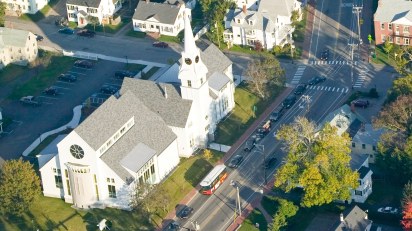Key point. Clerical errors can derail a church’s tax exemption and application and since most states do not automatically exempt from churches from property taxation, an error-free and timely application is crucial for getting and keeping that tax-free status.
Summary: The Oregon Tax Court ruled that a church’s property did not qualify for exemption from tax because of defects in the church’s application for exemption.
Church had two chances to retain tax exemption
A church failed to timely respond to a county tax assessor’s multiple, written requests for information related to the church’s March 2020 application for a property tax exemption on its leased space.
After sending two letters regarding the incomplete application, the tax assessor sent another letter on November 24, 2020, asking the church:
- To clarify the years for which the application was being sought.
- To provide square footage of the church’s lease.
- To provide a contact email address for the church.
The assessor gave the church a final deadline of December 9, 2020, to respond. The church failed to do so, and the county denied the church’s application on December 22, 2020.
The church appealed the denial to the Oregon Tax Court, claiming that church services, postal mail activities, and email communications all were affected by the COVID-19 pandemic during 2020.

Q&A: Can a Church Glorify God via the Property Tax Process? Absolutely.
Clerical errors derailed the process
The Oregon Tax Court began its opinion by recognizing the exemption from property taxation available to religious organizations in the state. The court also noted the application process a religious organization must follow to receive an exemption.
The court then noted that properties that are leased can be eligible for an exemption if certain requirements are met:
The application for exemption must provide … a complete description of the property claimed exempt; facts regarding the use of the property proving exempt purposes; a copy of the lease; and “any other information required by the claim form.” The claim form asks the question ‘is any portion of the property you lease used by others?” Next, the form asks, “if yes, what is the square footage of the area used by others?” Only the portion of the property which is “exclusively occupied and used” for an exempt purpose is eligible for exemption. … A county may request additional documentation or information if a taxpayer’s application is incomplete (emphasis added).
Clerical errors could have been ‘easily fixed’
The court concluded:
The court understands the hardships surrounding COVID-19 during 2020.
Employees in many businesses, as well as this court and many county offices, were limited in working from the office during 2020.
This likely was the cause of the county’s delay in asking the church for more information.
However [the pastor] received actual notice of the county’s request for information to correct the application’s defects in November 2020 … . The application could have been easily fixed, but for unknown reasons, the church did not do so.

Evaluate Property Tax Exemptions Annually
Even still, the church could have filed a late application for exemption until December 31, 2020, and did not do so. The result here is unfortunate, but it is correct under the law… (emphasis added).
[The pastor] filed a timely application for a property tax exemption. The application was defective, and the county gave proper notice of the defects and requested [the church] to provide missing information. The church did not provide the missing information, and thus the county was correct in denying the exemption for the 2020-21 tax year.
What this means for churches
There are many reasons why church property may not qualify for exemption under state law, including:
- Failure to file an application. State law requires churches to file an application for exemption. Churches should not assume they are automatically exempt.
- Defects in a church’s application for exemption.
- A church’s property does not satisfy all the conditions for exemption.
- A church lost its property tax exemption because of commercial or rental activities.
- Failure to renew the exemption if required by state law.
Church leaders should not assume that church property is exempt from tax, but instead should periodically confirm the exemption. This is a simple task that can be performed in a few minutes online.
Bible Believers Church v. Washington County Assessor, 2022 WL 1447388 (Or. App. 2022).